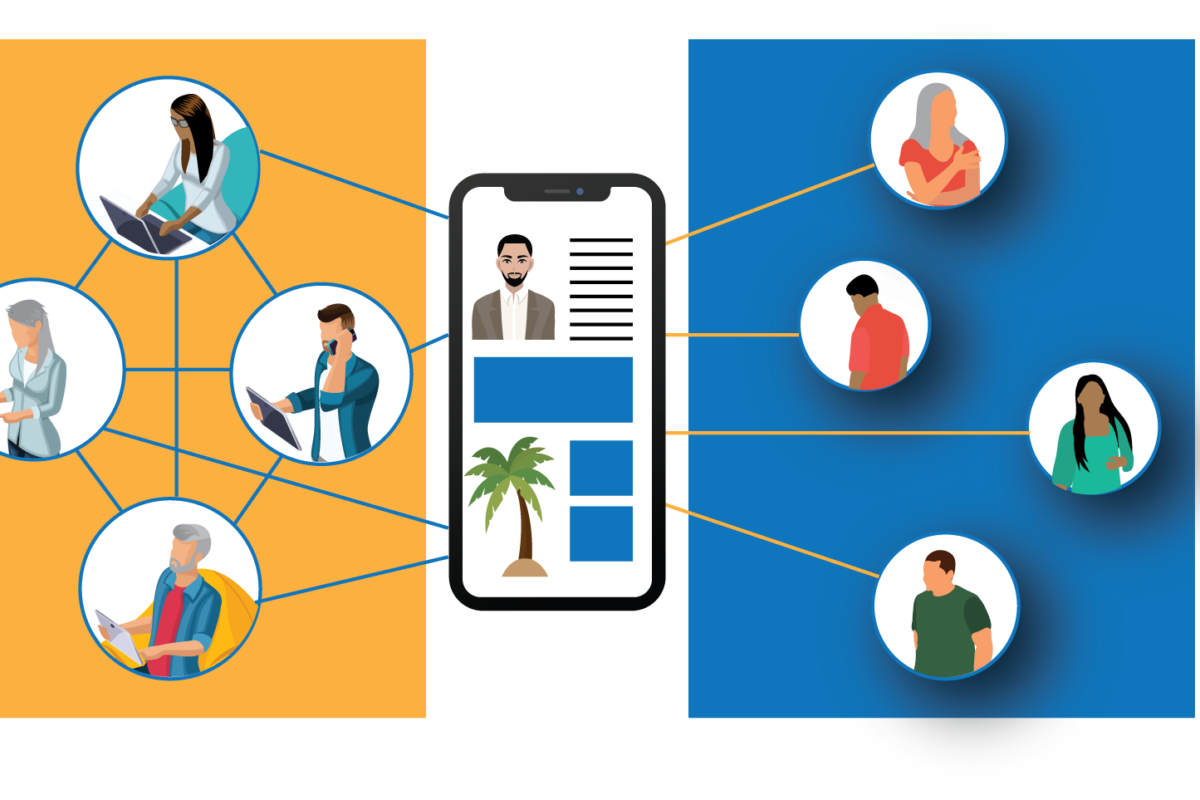Social Media Use and Well-being: What We Do and Don’t Know
November 15, 2022 (New Carrollton, MD) Nearly 60 percent of the world’s population, and 81% of the US population, are active social media users. As social media use becomes more pervasive, there is a growing interest in the role social media plays in wellness and mental health. Does social media help or hinder mental health? The answer is not that simple. Social media can be an easy, accessible way for people to establish social connections and networks. These can be important contributors to well-being and mental health. Yet some studies indicate social media use also may have a negative effect on mental health and well-being, although these effects vary by age, race, and other demographics. Recent research suggests that how social media is used can have a greater impact on mental health than how often or how long social media is used.
The November 2022 Behavioral Health Spotlight focuses on social media use and well-being. “Social Media Use and Well-being: What We Do and Don’t Know” was written by Nancy Bateman, MSW, a Senior Public Health Advisor for Behavioral Health Services at Bizzell. It discusses current findings on social media use and well-being, meaningful uses of social media data in the mental health/well-being space, and recommendations for future research. The BHARC Behavioral Health Spotlight, published by the Behavioral Health Advancement Resource Center (BHARC) and funded by Bizzell, is a thought leadership series highlighting various behavioral health topics that impact communities across the United States and abroad.
Read the report: Social Media Use and Well-being: What We Do and Don’t Know
About BHARC
The Behavioral Health Advancement Resource Center (BHARC) is an ever-growing and trusted source for current behavioral health program development and research findings, examples of evidence-informed and promising practices, and emerging behavioral health policy and interventions. The BHARC Advisory Council consists of experts in substance use, mental health, clinical trials, pharmaceuticals, and healthcare standards and quality. For more information, visit: BHARC.org
About Bizzell US
Bizzell US (Bizzell) is a strategy, consulting, and technology firm that designs innovative solutions to help build healthy, secure, and sustainable communities in our nation and around the world. Bizzell leverages the combined experience of our diverse subject matter experts to develop data-driven, research-informed answers to the world’s most complex challenges—ensuring our clients achieve their vision and goals. For more information, visit: BizzellUS.com




